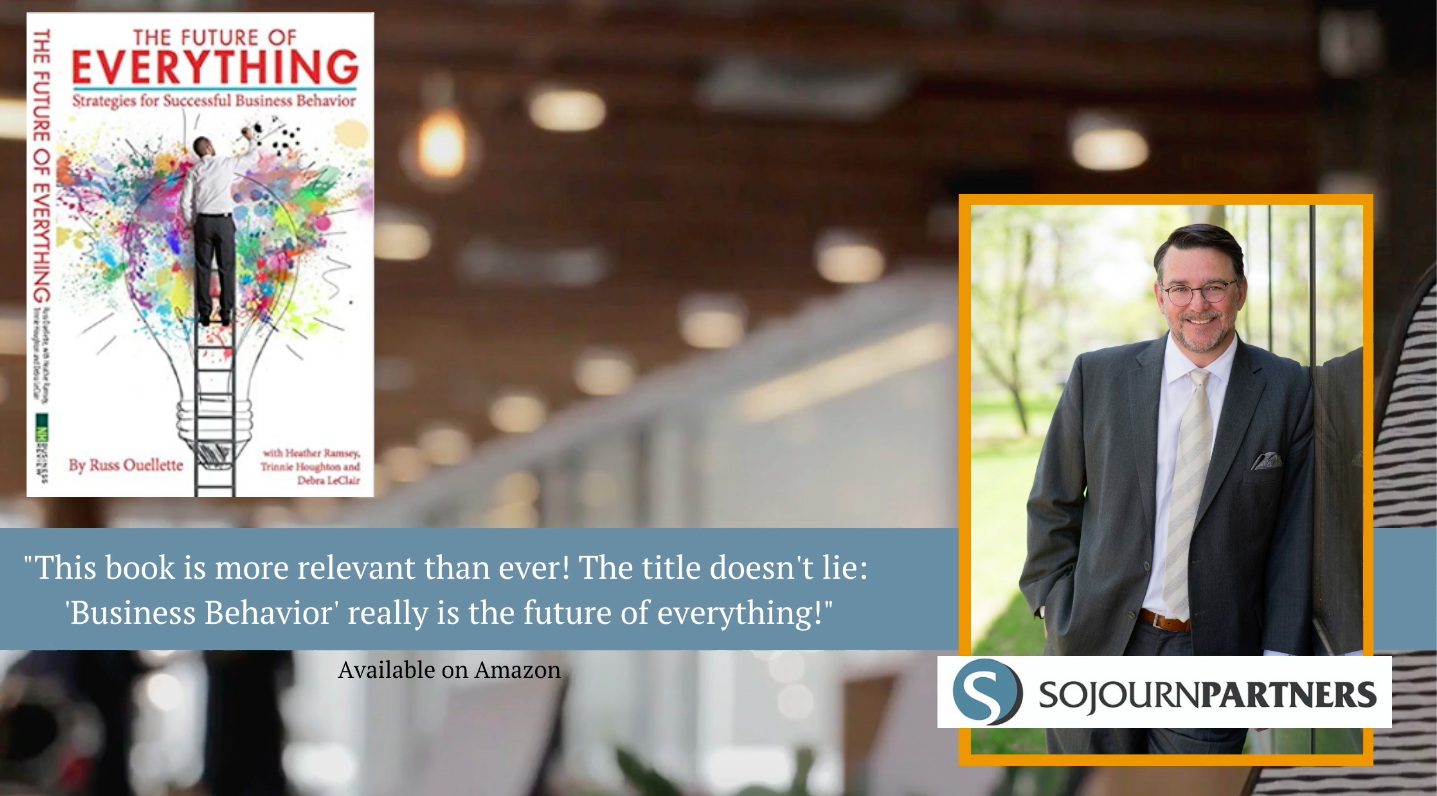Founders Syndrome
Except from “The Future of Everything, Strategies for Successful Business Behavior”, Dr. Russ Ouellette, author (2015).
What is Founders Syndrome?
I started to catch the Founders Syndrome myself about 4 years ago, but was healed quickly with humility. It kind of sneaks up on you and at first feels like a sense of power and accomplishment. After a while it can morph into arrogance and pride. This is the slippery slope to avoid.
The Dream of an Entrepreneur
As a founder or entrepreneur, you have a dream and push to make it happen by taking risk, having faith, and being able to orchestrate other people, vendors and partners to put together the perfect set of circumstances that ultimately begins to break new ground. The result can become a somewhat stable situation that is the result of the founder using his or her talents in a gifted way.
Psychology of “Founder”
What sometimes happens here is that the entrepreneur now continues to do what he or she does best and pushes for the next success. This cycle can continue and become a wonderful thing. However, sometimes the entrepreneur suddenly switches their mental model to that of a founder of something. The phycology is subtle, but powerful.
What is Our Role?
At one time, the entrepreneur thought of themselves as a creator, a coordinator of ideas, a leader of thought and action. Once they think of themselves as the founder, it implies they are finished. A founder is a title we give people who deserve respect for their contribution in creating something new…when they’re done.
Three Symptoms of Founders Syndrome
Symptom One:
The first symptom of the founder’s syndrome is that they refer to themselves as a founder. Its’ okay for others to refer to me as the founder of Sojourn, but Sojourn is not done, so I am not the founder of anything yet.
Symptom Two:
The second symptom is: “I think I know everything, and nobody understands my business like I do.” This is the kiss of death and basically makes us withdraw into ourselves. If I no longer allow people to morph, make mistakes, experiment and adopt, then the entrepreneurial spirit is gone and all we are left with is the founder’s legacy of what they created and then froze in time. After all, this is how you create something, by trying, failing and trying again.
Symptom Three:
Finally, if left to go on too long, the founder starts loosing people, doing everything themselves, and further focuses on what they have already created and not what then can create.
If you are in fact a founder/entrepreneur, like I am, stay focused on the entrepreneurial part. Every day when I know I have the answer, I really don’t.
Consider the following practices:
• Listen to what your team is telling you. They are pushing the envelope and keeping us fresh. Don’t get stuck on your own ideas.
• Don’t think of yourself as alone. You are sharing something so therefore share it. Just as you started your venture, you found and relied on others for help. Do that again.
• Keep evolving. What you created 5 years ago is still good, but you are not done. You now have to take that next risk, that next hill, that next challenge.
• Be humble. You did not get here on your own. Recognize that, build on that.
• When it’s time, get out of the way. Just because you reach your peak at your own company does not mean it’s time to pretend you haven’t. Pass on the responsibility of growth to others, and let go.
Excerpt from a Case Study on Founders Syndrome, from “The Future of Everything, Strategies for Successful Business Behavior”, by Dr. Russ Ouellette, Founder of Sojourn Partners, with Heather Ramsey, Trinnie Houghton, and Debra LeClair
Book available through Amazon and other online outlets.

